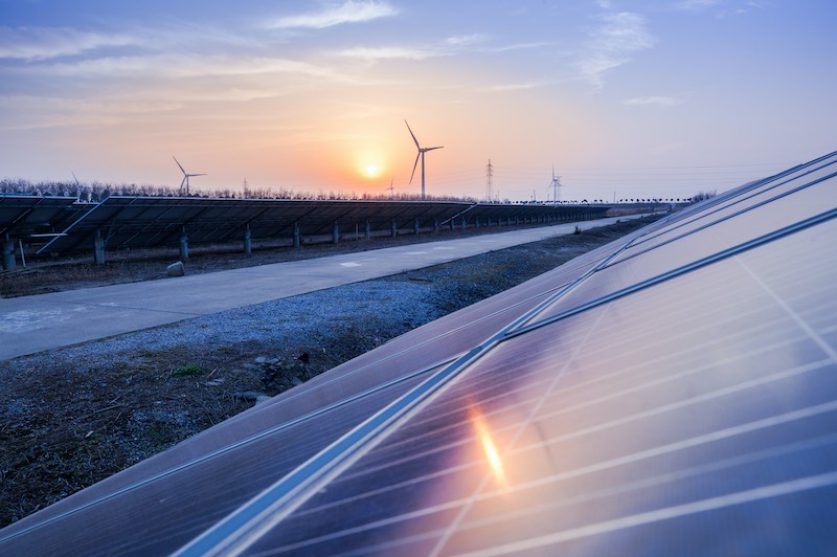
The UK must deploy an additional 80GW of solar power and 20GW of wind power, backed by 15 to 30GW of battery storage, to meet its net-zero goal by 2050, a new whitepaper from consultancy Atkins has calculated.
The report, “Race to Net Zero,” considers how much renewable capacity is needed to decarbonise the energy sector and how quickly it needs to be deployed—and found the country is lagging far behind.
To add 80GW of solar power by 2050—increasing the current capacity of 13GW sevenfold—the UK must install 2.67GW of solar PV panels each year until 2050. However, last year just 257MW (0.257GW) was rolled out, less than 10% of the target outlined by Atkins.
But Atkins suggests that the condition are right to substantially ramp up solar PV installations. The technology is simple in engineering terms, has low development costs and responds quickly to changes in subsidy schemes.
A bolstered solar power sector will, along with wind, meet 58% of electricity demand in a net-zero Britain, compared to the third it has supplied in recent years. Nuclear power plants will supply 11% of the country’s power, down from 20% in 2019, while gas turbines, paired with carbon capture storage (CCS) will generate 22%. Bioenergy, also coupled with CCS, will supply 6%.
To achieve this, over the next 30 years the UK will also need to deploy a 6520 offshore wind turbines, for an additional 20GW of wind power, along with 66 biomass facilities, 48 natural gas units and six nuclear power stations.
To maximise the viability of intermittent renewable resources, 15 to 30GW of new battery storage will also be required, up from just 1GW today.
Our current build rate is just 43% of what will be needed to hit these targets, Atkins warns. The whitepaper is therefore calling for “urgent” government investment, particularly in nuclear and new energy technologies, to accelerate the build rate. A single government body, or Energy Systems Architect, should be created to manage the rollout and optimise the energy system of 2050.
David Cole, power generation assets market director at Atkins, said: “Market intervention in the UK offshore wind industry saw the cost of construction and electricity come down, resulting in the UK now being a global leader in deploying renewables.
“Similar intervention is now required across nuclear, new technologies and other energy sources so that the UK energy industry can construct the above number of facilities in enough time.
“In the midst of a global crisis, it can be overwhelming to think of future targets, but climate change is not going to fade away and thirty years is not a long time—we must act now; the government must act now,” he added.




